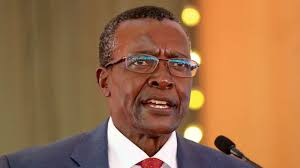Former Chief Justice David Maraga has sharply criticized President William Ruto’s economic record, highlighting a rapid increase in national debt and questioning the government’s fiscal management. Speaking publicly and via an X post, Maraga said that while officials claim the economy is improving, ordinary Kenyans continue to struggle.
Maraga noted that since Ruto assumed office, Kenya has borrowed at least 40% of its national budget. He highlighted that the national debt has surged from Ksh8.6 trillion to Ksh12 trillion within just three years, warning that such rapid borrowing places an unfair burden on future generations.
Dismissing claims of economic stabilization, Maraga pointed to official communications indicating that foreign reserves now stand at USD 12 billion. However, he stressed that this growth in reserves has not translated into tangible relief for the average Kenyan, questioning the real impact of government policies on citizens’ daily lives.
“The reality is that Kenyans are bearing the cost of decisions they had no say in,” Maraga said. He framed the debate around honesty and accountability, urging leaders to prioritize investments that create local jobs and opportunities rather than simply reporting impressive macroeconomic figures.
Maraga, who is positioning himself as a 2027 presidential hopeful under the United Green Movement, has increasingly emphasized a people-focused approach. His political strategy includes public crowdfunding, reflecting his commitment to grassroots participation and transparency in leadership.
He encouraged citizens to demand leaders who respect public funds and ensure that every tax shilling is wisely used. “We can continue pretending that President Ruto understands our struggles. Or we can choose an honest leadership that treats every tax shilling as if it’s the last we have,” Maraga stated.
By highlighting the economic challenges facing Kenyans, Maraga continues to position himself as an alternative voice, promising accountability, responsible fiscal management, and policies that genuinely benefit the populace.

